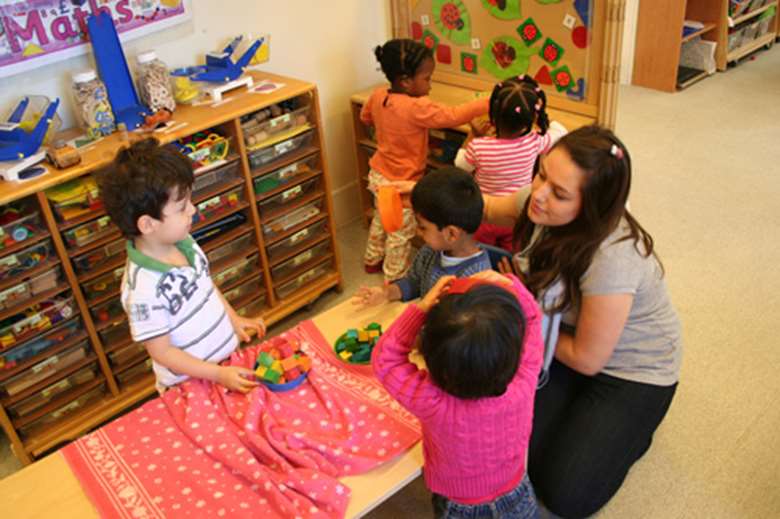Children's social mobility improved by educated early years staff
Joe Lepper
Friday, September 21, 2012
The degree to which early years professionals are educated has a bigger impact on improving social mobility than the ratio of staff to children in pre-school settings, a report by The Sutton Trust has claimed.?

The report, which details conclusions from the charity’s social mobility summit, found that having access to an early years professional with “a high level of education”, who uses a wider range of vocabulary, and does the kind of things that “highly educated mothers would do” is crucially important.?
Based on research into school readiness, the report says that investing in better educated early years staff is more important than the length of time a child spends at nursery, adding that there is “no evidence” attending an early years setting for eight hours as opposed to four hours doubles the benefits available to children.?
Sutton Trust chairman Sir Peter Lampl, said: “The early years are vital to every child’s development, and essential to their future life chances and social mobility. It is vital that the workforce has the skills and education to provide those youngsters with a good vocabulary and the cognitive and social skills that will prepare them for school.?
“Working with young children should not be seen as a lower-skilled, lower-paid or lower-status profession than working with those over the age of five. Most of the gaps that we see between poorer and better off young people are evident from a very early age, so investing wisely at this stage can make a huge difference.”??
The research echoes the findings of Professor Cathy Nutbrown’s review of early education, which was published in June. ?
Purnima Tanuku, chief executive of the National Day Nurseries Association, agreed that the standard of pre-school provision is more important than attending for a given number of hours, but warned that government must take action to mitigate risks to the quality of provision.
“The commission on childcare will need to address how to have a well-rewarded, world class workforce while keeping fees affordable for parents,” she said.?
“Currently many providers have to make up losses on their funded hours by increasing fees to paying parents for hours outside free provision. There is a risk that this will be exacerbated by the two-year-old offer if enough funding for high quality provision led by skilled practitioners doesn’t get to the frontline.”?
A Department for Education spokesman added: “The early years are crucial in helping all children, particularly those from the most disadvantaged areas, develop and be prepared for school.” ?
The government will respond to Nutbrown’s recommendations later this year.




